Cruise: How the aids drama is modern day gay folklore
Attitude chats to the play's writer and actor, Jack Holden, as well as Tash Walker, the co-chair of Switchboard LGBT+ Helpline.
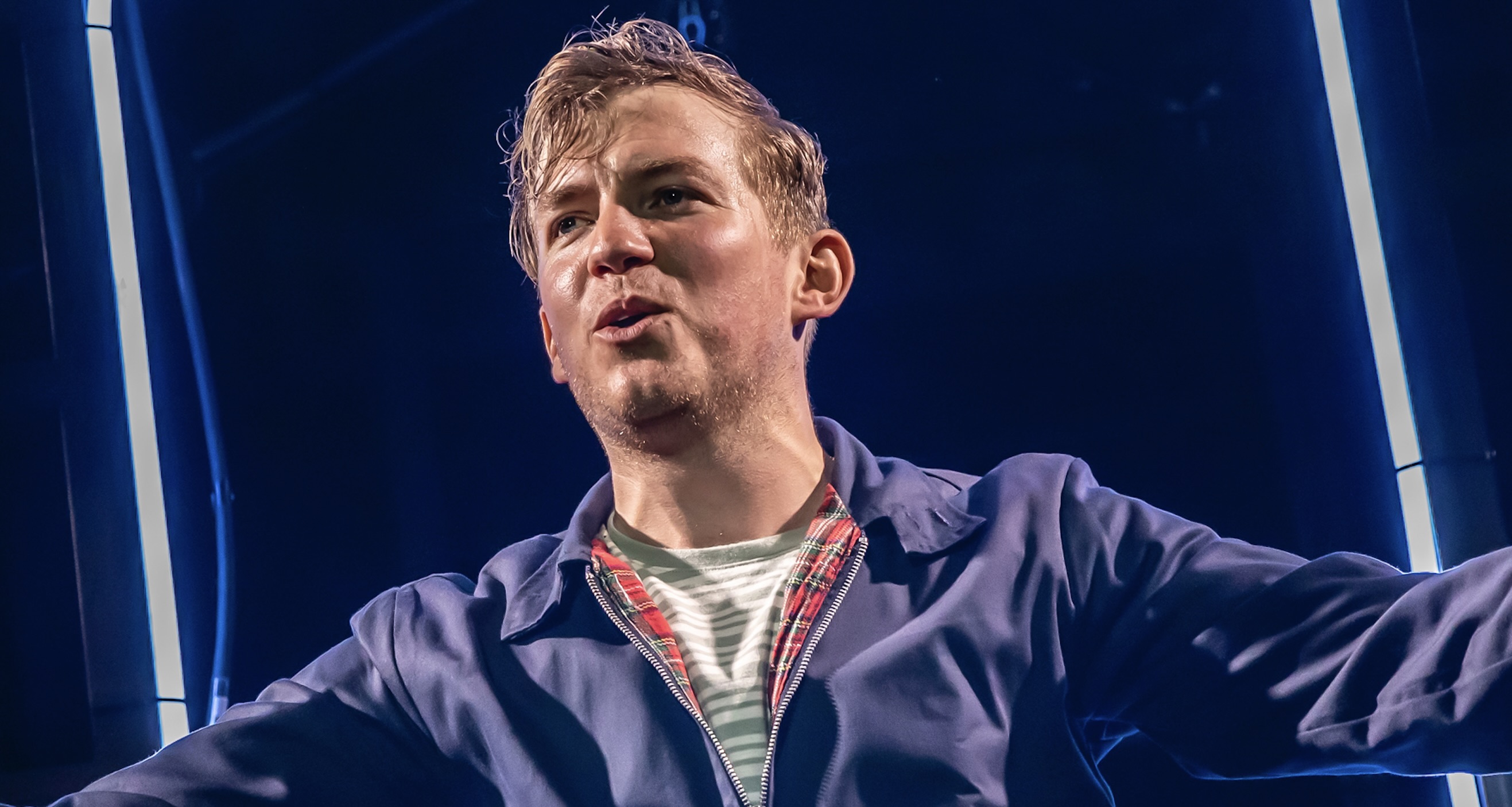
Words: Alastair James; pictures: Pamela Raith Photography, Provided, and Harry Livingstone
Jack Holden is dancing the dance of his forefathers and Cruise is modern-day gay folklore. That’s the take from Switchboard LGBT+ Helpline’s Tash Walker on the actor’s performance in the Aids epic.
The play is a powerful tribute to a generation decimated by HIV and Aids. It tells the story of Michael, a man diagnosed with HIV in 1984 and is told he has four years left. On what he thinks is his last night on earth he goes all out on a hedonistic quest to live life to the fullest.
After a successful first run last year, Jack is making a triumphant return to the West End with John Patrick Elliot also returning to provide the kaleidoscopic musical soundtrack.
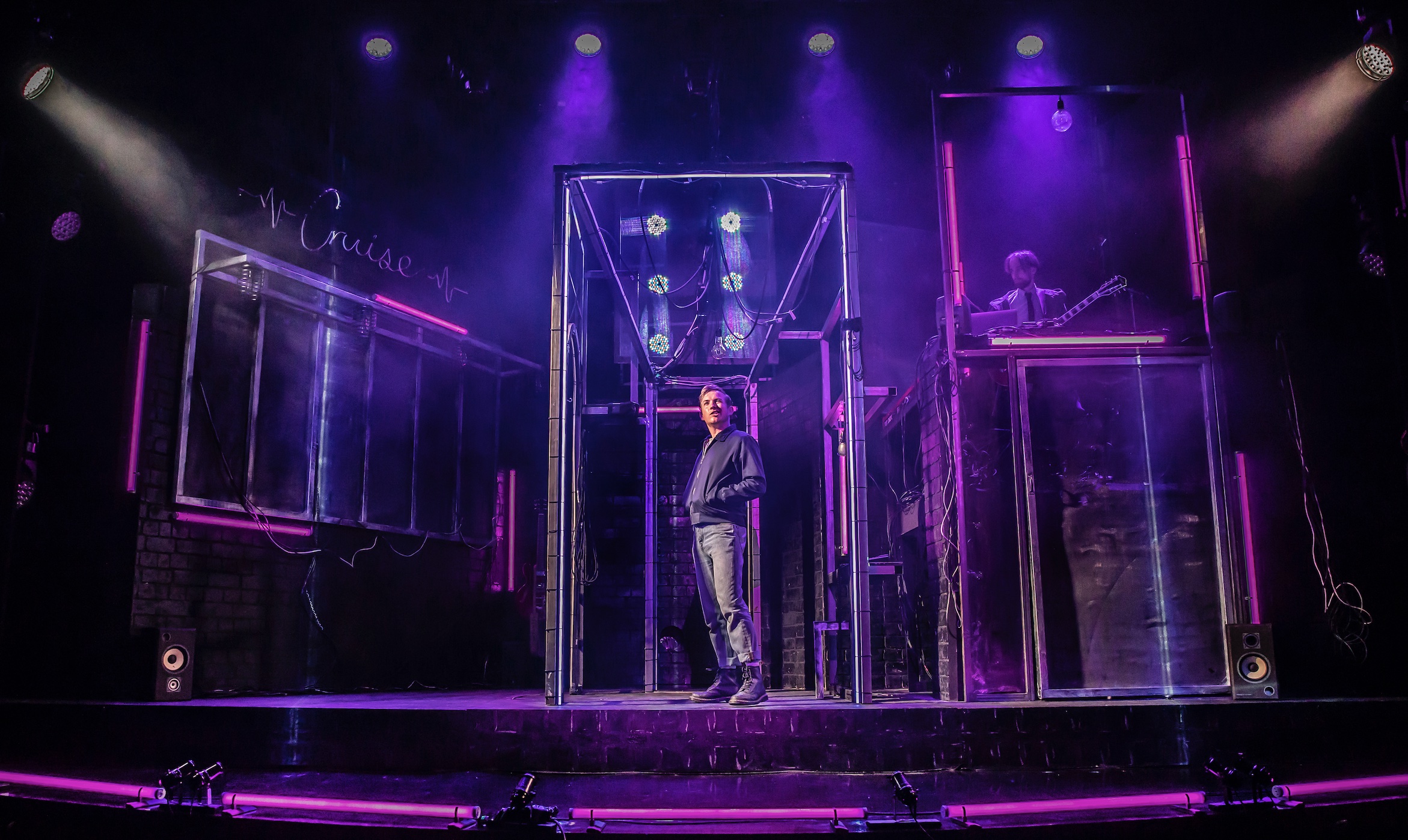
Jack Holden and John Patrick Elliot in Cruise (Photo: Pamela Raith Photography)
The play is all based on a call Jack received while volunteering at Switchboard in his early twenties. Chatting to Attitude, alongside Walker, about bringing the play back the two reminisce over their time answering calls from members of the LGBTQ community.
Despite Jack and Tash having started volunteering at around the same time (Tash from 2012 and Jack from 2013), they didn’t meet and weren’t aware of their own shared history until recently. Such is the nature of the shifts Jack tells us. What they also share is a love for the charity and a romantic connection to its history, as well as queer history.
Here, they talk about their experiences at the charity, queer history, and how Cruise is folklore.
Why did you both get involved with Switchboard in the first place?
JH: I was in my early 20s. I’d moved to London and had been in War Horse for a year and life was great. I was getting paid in a West End Show. This is so much fun. And when that finished, and no work came along straight afterwards, I was like, who am I? What is my life? So, I was like, I need to start actually building a life that’s not just work.
I looked around for places to volunteer. I saw Switchboard and it terrified me, the idea of fielding calls from people from all walks of life, struggling with things. But once I went for the first information evening to find out whether you would like to actually go through with it, it was just such a lovely, welcoming atmosphere.
And everyone there was so nice and kind of ironically, the first person I met and the person who trained me, was a producer for the Royal Shakespeare Company
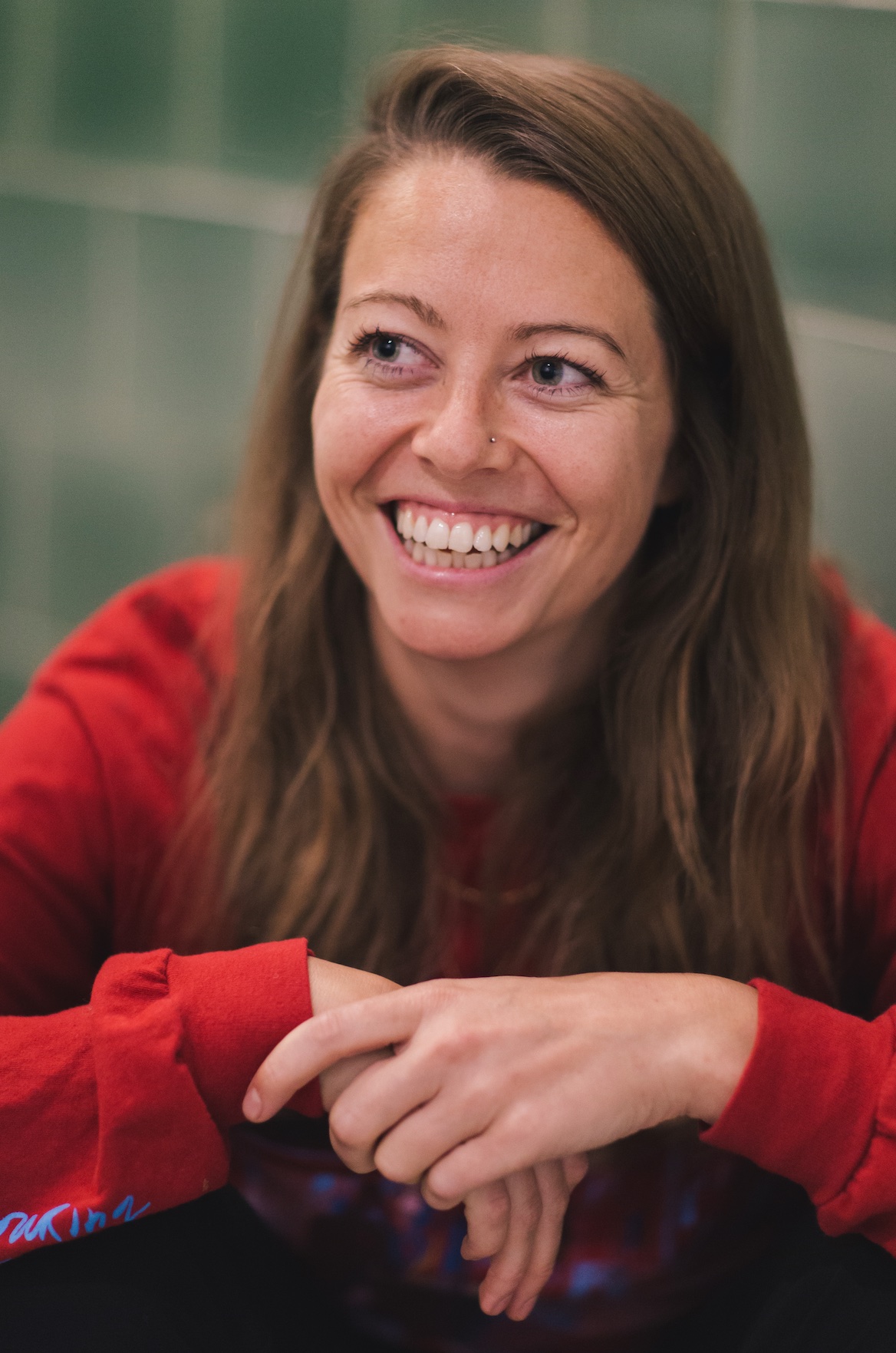
Tash Walker, the co-chair of Switchboard LGBT+ Helpline (Photo: Provided)
TW: Oh, Jeremy!
JH: Jeremy, yeah. Really broadening those horizons… But I learned so much about the queer community.
TW: Jeremy was one of my trainers as well. For me, when I was at uni in Bristol, I was quite involved in the LGBT society, and I remember seeing an article in Bristol’s Timeout that said, ‘more women wanted on the Bristol switchboard’. There used to be all of these different Switchboards across the UK. What we now call Switchboard the LGBT+ hotline – then London lesbian gay switchboard – was one of the larger ones and a bit of a central hub.
Many of those smaller switchboards have shut down now. I signed up, I had hardly any training and then suddenly, the phone starts ringing and I’m on. I’m like 21, 22, and I’m speaking to people whose lives are sort of in my hands a bit. And the one thing that the trainer said to me was, ‘if it ever feels too much and you’re not sure, just tell them to call London switchboard’.
So, when I moved to London a couple of years later, I just had to go to this beacon of queer knowledge. And I applied to be a volunteer there. And it was amazing. I think as a younger queer person, I was in search of my identity. So, I started volunteering there.
And yeah, the training is so extensive, it’s so thorough, half of the time I just spent in shock that I hadn’t had that training at the Bristol switchboard, which shortly shut down. And then I started taking calls.
Everyone that I’ve spoken to, Jack included, and all the people I’ve interviewed, and who are in the organisation, you join Switchboard and you’re there for a bit of time and you leave on a different trajectory because it impacts you, it changes you, and you change people and you help them and impact them too, as part of the process.
So really it is as much about what you get from being a volunteer as much as what you give to the organisation.
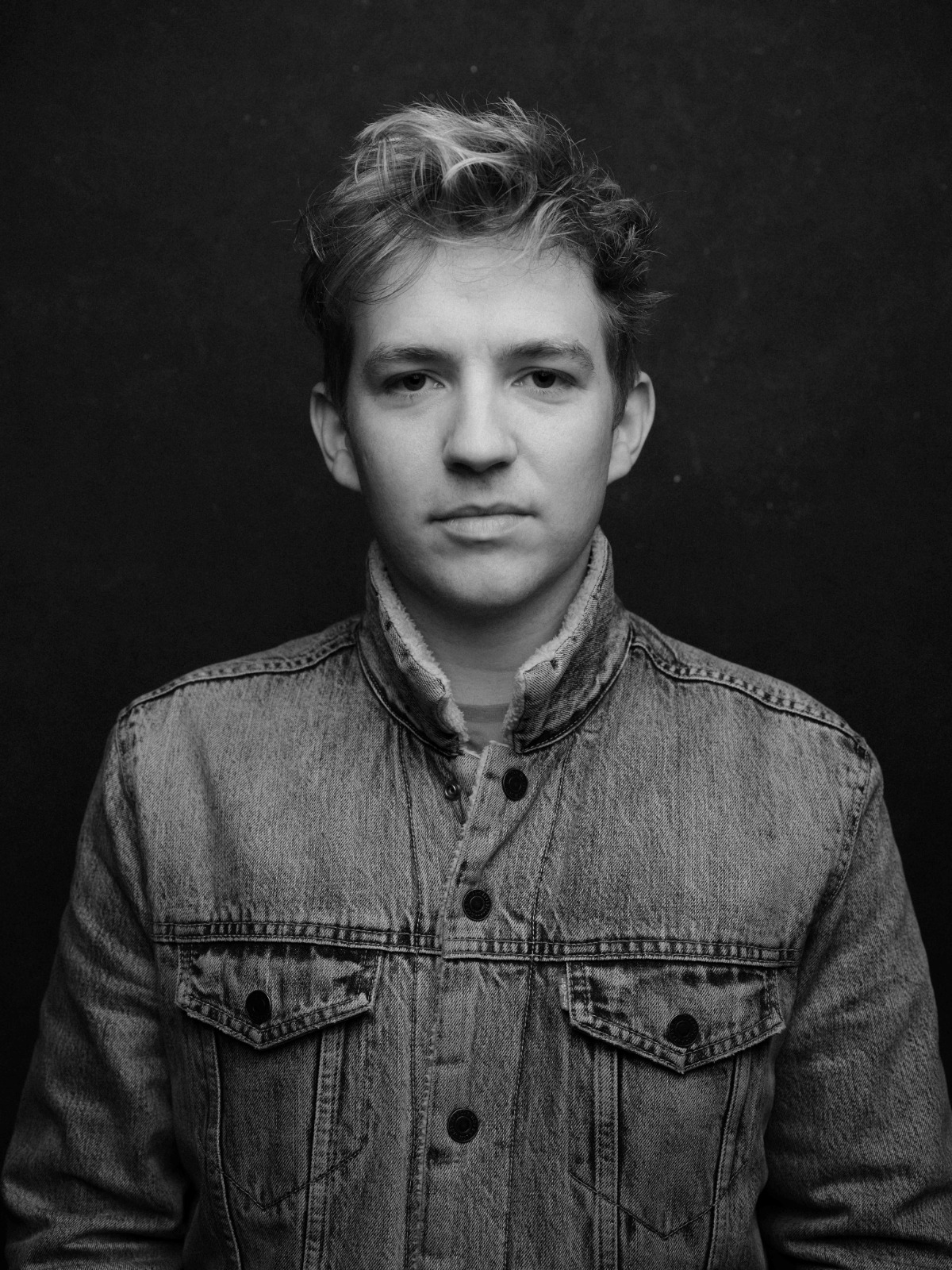
Jack Holden (Photo: Harry Livingstone)
Tash, what did you make of Cruise based on your experiences at Switchboard?
TW: I actually haven’t seen the play, which is outrageous. So, I’m gonna go this time around. But I’ve read lots about it and I was talking to Jack about it.
I haven’t taken that exact call. But I have read the logbooks, which are this written record of Switchboard’s history, between 1974 to 2003. They’re a record of the notes that the volunteers made after taking the calls. And speaking to Jack about the play and seeing the reviews it is exactly just one moment that is repeated over and over again.
In the 80s Switchboard was taking, at its height, 200,000 calls a year, phone lines were breaking, it was completely overwhelmed. And it was 24 hours. And each call was from someone who was frightened because they had just had an HIV diagnosis. They were freaking out about catching Aids, or someone that they loved had just died.
And the volunteers are picking up those phones and they were answering those calls. And they were speaking to people who felt like they had a death sentence. And they were wanting to know what to do. They were in denial. They were out partying too much. They were crying on the other end of the phone and the volunteers were going through that themselves as well.
So, it’s amazing to see it come to life through this play because the 80s, they were heavy and full of fear and media hostility and so much scare mongering under Thatcher’s government, but they were also fun, and they were full of life

Jack Holden in Cruise (Photo: Pamela Raith Photography)
Oral history is key to queer history as so much has been expunged and hasn’t previously been taught widely before. What was your understanding of this period in time when you started Cruise, Jack?
JH: I think I had quite a thorough understanding of the Aids crisis from an American point of view, actually, because there’s a lot of American theatre about it; Angels in America, the Inheritance, The Normal Heart, there’s a really fine tradition of talking about it in American theatre. I guess I had less of an understanding about it from a British point of view.
That wasn’t a wrong I was seeking to right. About that thing that Tash said about the 80s being this mix of real despair but also complete jubilation, you have this amazing intersection of this groundswell of excitement and liberation, being absolutely careered into by this devastating act epidemic.
And films like Pride, which I thought were did a really good job of bringing the activism of the 80s to life and how the queer community was brought together through organisation. Mark Ashton, he volunteered for Switchboard as well, right?
TW: Yeah, he’s littered all over the books
JH: But he got HIV and he died of Aids related illnesses. And that happens in the film. And so and so I wanted to just pour all of everything into the play really, that I knew from that period, plus research, plus talking to people who were there at the time.
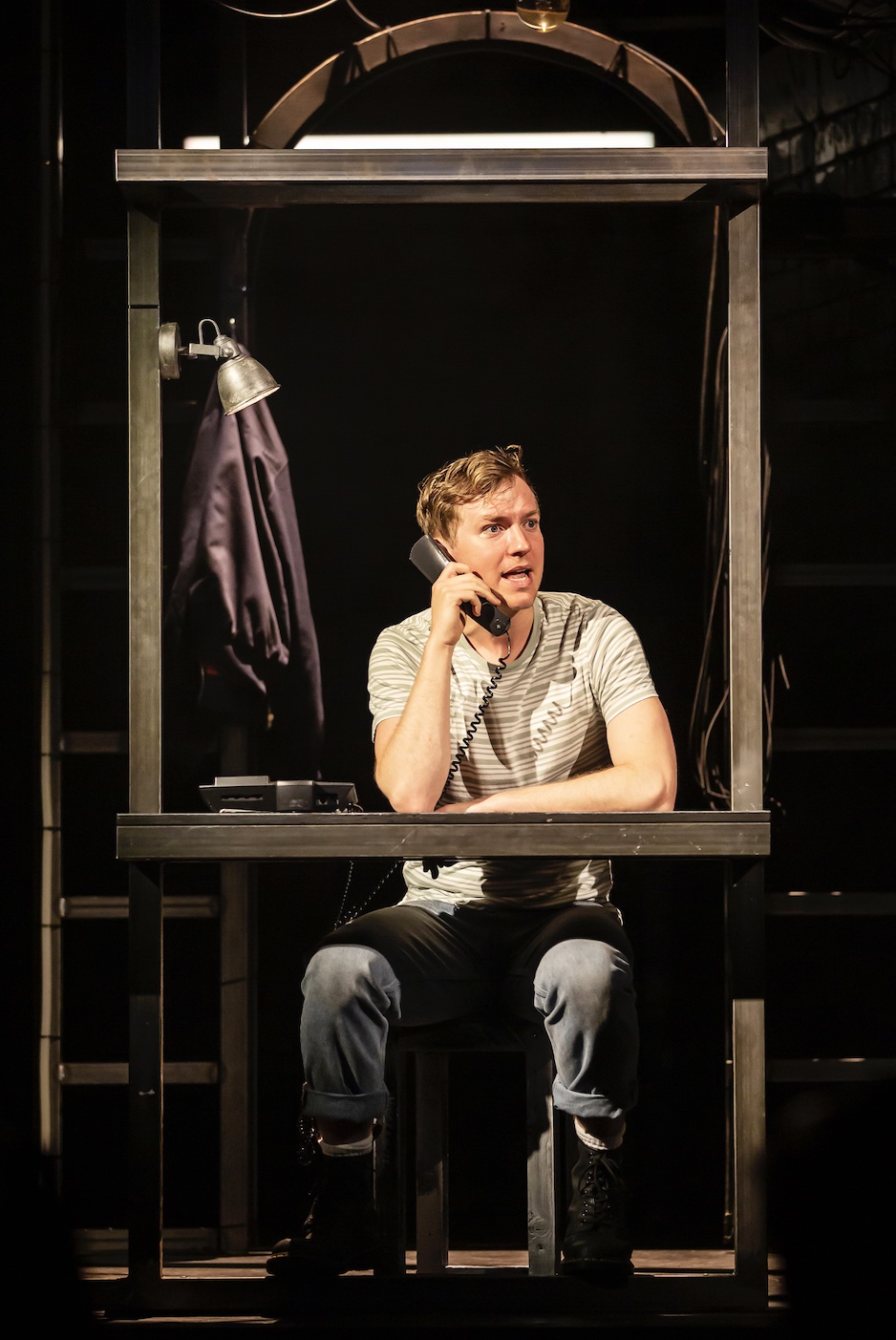
Jack Holden in Cruise (Photo: Pamela Raith Photography)
On Jack’s point about US theatre chronicling HIV and Aids, Tash, have you found that from a historical point of view we tend to focus on America when talking about it?
TW: 100 percent. It makes sense and I think that happens as well when you look at Stonewall and the Stonewall riots and forgetting that there was a movement here already happening. But definitely the HIV narrative that comes out of America is bigger and is wider. And I think in part because it came from America to us.
There’s a note in the logbooks. Switchboard had to organise the first conference on Aids and Mel Rosen, the director of the New York-based Gay Men’s Health Crisis, came across. Mark Ashton put his hand up and asked, ‘Is this a CIA plot?’ And Mel said, ‘You know what? We actually have no idea, it might well be.’
He also talked about how we should start getting prepared because there’s a train coming down the tracks, and it’s not stopping. And that’s exactly what happened. I think because of that, our stories are often lost. But there’s amazing work that’s happening and uplifting them with what Jack’s doing. It’s A Sin was fantastic and so mainstream, which I think is incredibly important.
But I’ve worked on a couple of other documentaries as well and they’ve all used the logbooks to look at what was going on at the time. Those are incredible resources, the oral history archives, we have got the history here and we’re starting to share it and to tell it and it’s at-risk history, isn’t it?
That’s one thing that we need to keep in mind. Not only have we lost so many already as a generation, but those who remain are getting older. And if we can’t share their stories now, through their words then when can we?

One of Switchboard’s logbooks (Photo: Provided)
How important is it that we have something like Cruise, which keeps that history alive?
TW: It’s so important. How many stories have we heard of straight people? And yet, they’re still telling them. I think that this history has not been told, and it isn’t just Britain’s queer history, its Britain’s history, its social history. It will change how we see ourselves as children of Section 28.
It will change how children today see themselves. And when we look at history, we learn not only about what happened then, but what’s happening now. And history repeats itself more and more and more. We just lived through a pandemic where people completely ignored the HIV pandemic. And it’s so important. If you don’t keep talking about these things, they don’t become common knowledge and they don’t become normalised.
We’re slowly starting to see the school curriculum change. But I mean, Henry the eighth is interesting, but really, is he as interesting as this period of time, which is so recent? We can imagine what people wore then; we’re seeing people wear the same stuff again. There’s this big Stranger Things revolution of 80s culture and a really big part of that was what happened when it came to history around HIV and LGBTQ people.
Just seeing that individual story who is just a human, who’s been given something potentially quite horrific to try and process and they are having a very human reaction, they also happen to be gay. And this is what it’s always about, isn’t it human stories.
If we see people through human stories, we understand history through human stories, then we’re no longer looking at ‘you versus them’ or ‘this versus other’ and hopefully, we can start to push forward for a bit more of a kinder, equal future.
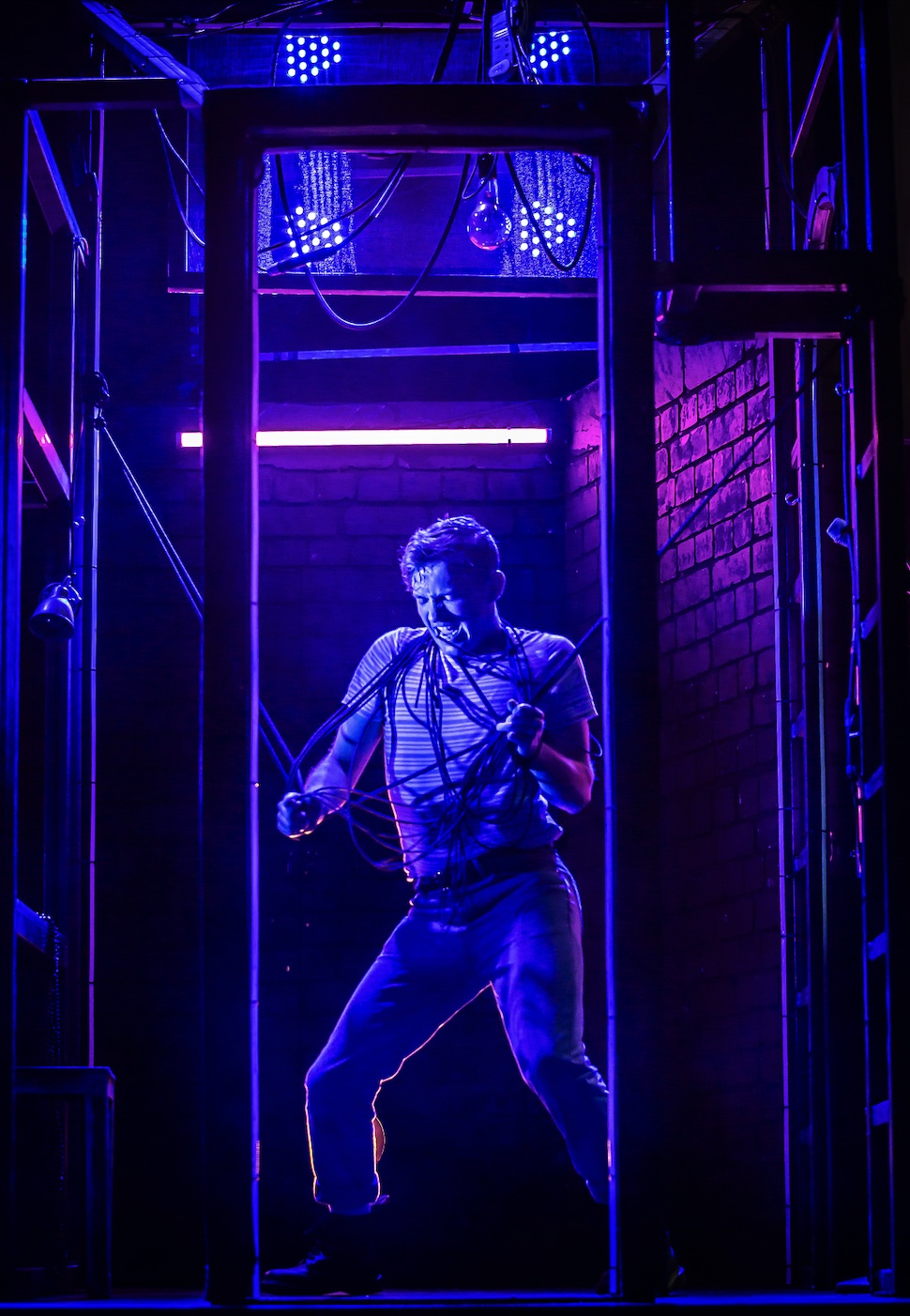
Jack Holden in Cruise (Photo: Pamela Raith Photography)
JH: Henry the eighth is a great example of how queer history is always lurking under the surface. And you don’t even have to dig that deep because Henry the eighth and Thomas Cromwell instigated the Buggery Act of 1533. And that was just to come down really hard on the monasteries and batter them about.
But then fast forward and it’s the Buggery Act that Alan Turing is charged under. This is our history. The queerness is rife in our history. It’s all there.
TW: Yeah, it’s just no one’s talking about it. And let’s look at the media hostility and the impact of that on men who had sex with men and who had HIV and look at what is happening to trans and gender nonconforming people today.
It’s a no brainer to make those parallels, but we have to, you have to look back and learn from them and shame the people who are doing it because it is so problematic.

Jack Holden and John Patrick Elliot in Cruise (Photo: Pamela Raith Photography)
Jack, does it feel different this time having had some time away but having picked up more info?
JH: I feel a lot more confident this time around. Halfway through the first rehearsal period, I was like, ‘What am I doing? What authority do I have to tell this story?’ But this time, I feel assured in delivering the story. And I trust it works as a delivery method. And so hopefully I think that as an actor that’s going to allow me to really go to greater heights and deeper depths.
TW: It’s like folklore. Stories are so inherent to how we share as humans and by performing this play, you’re dancing the dance of your forefathers, you know, from the 80s. It’s quite magical in that way.
JH: That’s a really good way of putting it. I feel a real connection with a generation and with Soho and London in a much deeper way than I did before.
Cruise is playing at the Apollo Theatre from 13 August to 4 September. Tickets are available here.
The Attitude September/October issue is out now.

